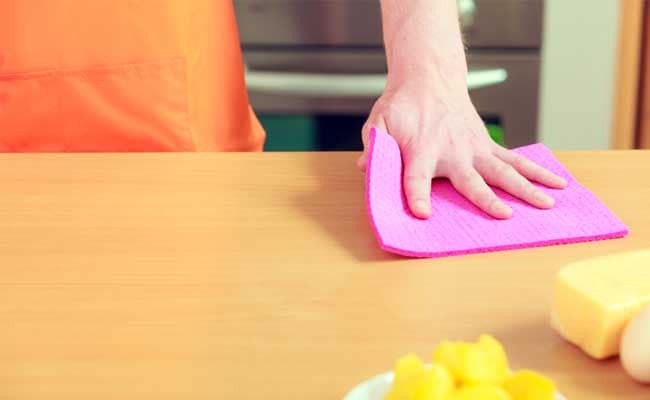
"Despite common misconception, it was demonstrated that kitchen environments host more microbes than toilets," the researchers wrote in their study. "This was mainly due to the contribution of kitchen sponges, which were proven to represent the biggest reservoirs of active bacteria in the whole house."
If you have been making the extra effort to clean kitchen sponge by tossing it in the dishwasher or microwave, or boiling it, these methods may not be enough to kill the pathogens, the researchers revealed in the study published in the journal Scientific Reports. In fact, regularly cleaned sponges aren't any cleaner than those that are never cleaned.

Kitchen environments host more microbes than toilets; Photo Credit: Istock
For the study, the researchers analyzed DNA samples from 14 different sponges, and found one of the samples containing a staggering 54 billion bacterial cells in a 1cm square area. They stated that kitchen sponges have "the capability to collect and spread bacteria with a probable pathogenic potential." This is due to their porous nature and water-soaking capacity, representing ideal incubators for microorganisms.
They also found that sponges that were washed didn't show any decrease in disease-related bacteria, and may even have increased their presence due to resistant bacteria that survive the cleaning and reproduce quickly.
The researchers stated, "Kitchen sponges not only act as a reservoir of microorganisms, but also as disseminators over domestic surfaces, which can lead to cross-contamination of hands and food, which is considered a main cause of food-borne disease outbreaks."
So should you stop using kitchen sponge?
"From a long term perspective, sponge sanitation methods appear not sufficient to effectively reduce the bacterial load in kitchen sponges and might even increase the shares of [disease]-related bacteria. We therefore rather suggest a regular (and easily affordable) replacement of kitchen sponges, for example, on a weekly basis," wrote the researchers.
Track Latest News Live on NDTV.com and get news updates from India and around the world

